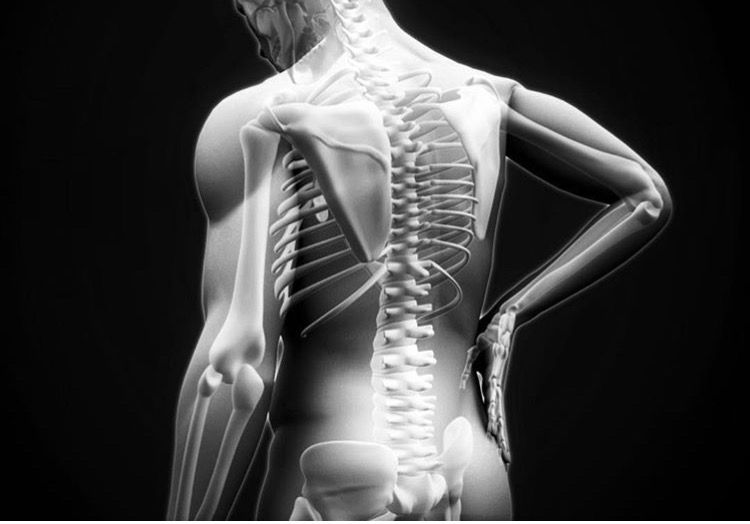The honest truth about back pain
- Nicole Bryant
- Feb 21, 2018
- 2 min read
Updated: May 24, 2023

Hands up who gets back pain from time to time? Yep, my hands are up. As a Physio I'm not immune either. And stats show 70-90% of us will have some back pain in our lifetime (2014-15 ABS). I developed a condition called Sheurrmans Disease in my teens. The structural change from this condition caused a few other early degenerative changes to discs and joints in my spine which brought on pain in my early 20s. And whilst looking at my spinal x-rays or MRI scan appears a little disconcerting on paper; none of that actually matters. We can throw those results out the window, it doesn't stop me living an adventurous life. I happily cycle, snow ski and learnt to wake surf recently. It can be easy to get bogged down in scan and test results but it's not the full picture. More research is showing that scan results don't correlate to pain or function. Many scan reports represent changes which are a normal part of ageing and are found in both individuals with pain and without pain. (Brinjikji 2014) This is why at High Line Active we don't routinely refer for scans first up. Sometimes that information can be useful but what's more important is a clinical movement assessment and discussion about your life, behaviours and what causes you pain. There's a small percentage of people that do need scans or a surgical referral but it's very rare.
From this assessment we can work out what your back likes and doesn't like and how irritable it is. Irritability means how much load or activity your back will tolerate before it flares up. We may complete some manual therapy treatments to settle the acute symptoms you may have based on what we find. From there the most important part of fixing your back involves a plan. We'll map out what to avoid, exercises that will help, talk about sleeping positions and work ergonomics. The more you can learn about your back and how to care for it, the faster symptoms will stop when you have a flare up and the less it will impact on your life. We'll guide you through the rehab process to ensure your back get's the mobility, strengthening or stability it needs to beat your pain. Exercise is crucial for your spine and health but it needs to be the right type and amount of exercise. Just because you have an injury doesn't mean you stop your usual exercise classes. If you stop, you loose the fitness you've worked so hard on and the rest of your body suffers (including your mental wellbeing). We can tailor your routine when your back is sore and throughout your rehab. We may suggest an extra yoga class and to stop spin for a couple of weeks. Or we may advise avoiding certain movements within your usual exercise class but we always advise keeping on moving. Then before you know it you'll be back to your normal routine stronger than ever. Life's too short to let back pain linger.
Take home messages:
Get an assessment with a Physiotherapist
Understand your back
Have an action plan
Do the rehab
Don't stop exercising
